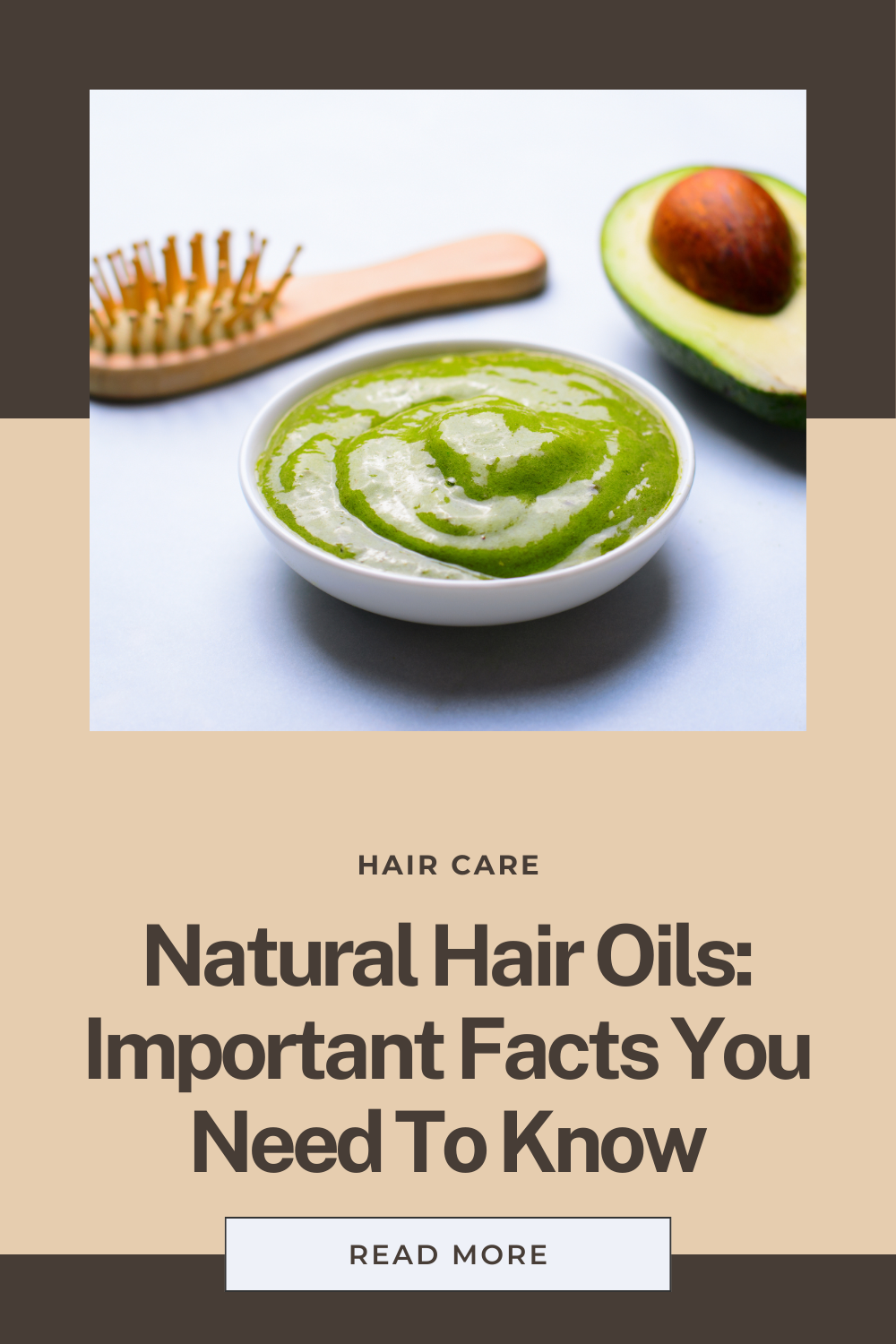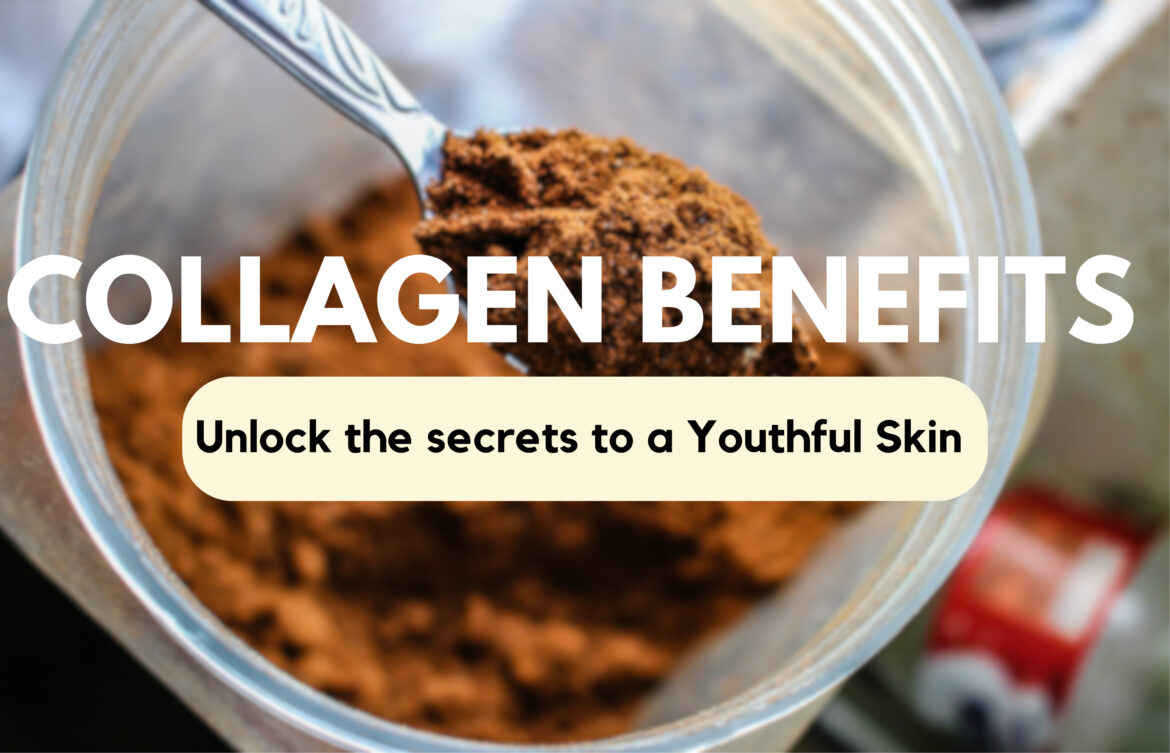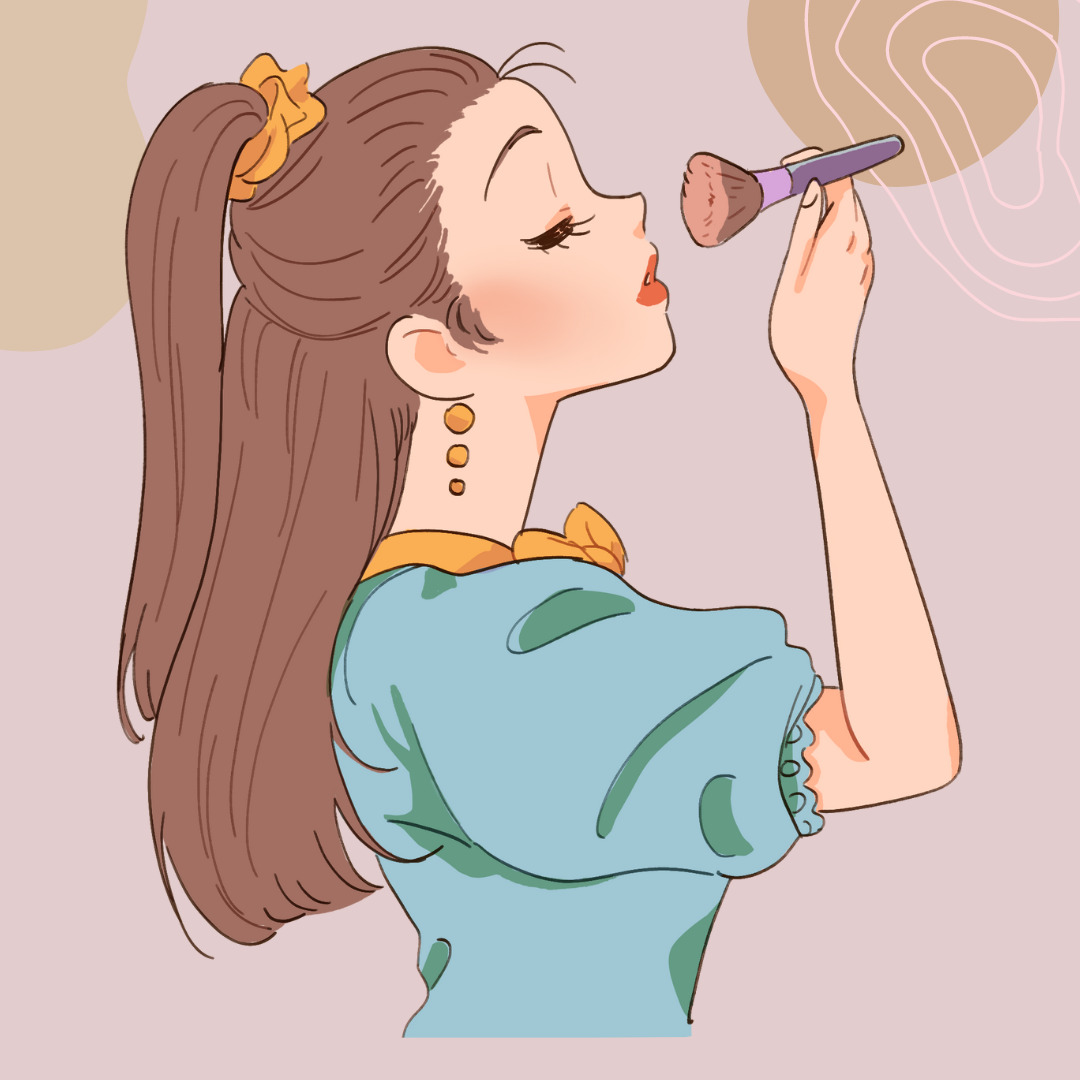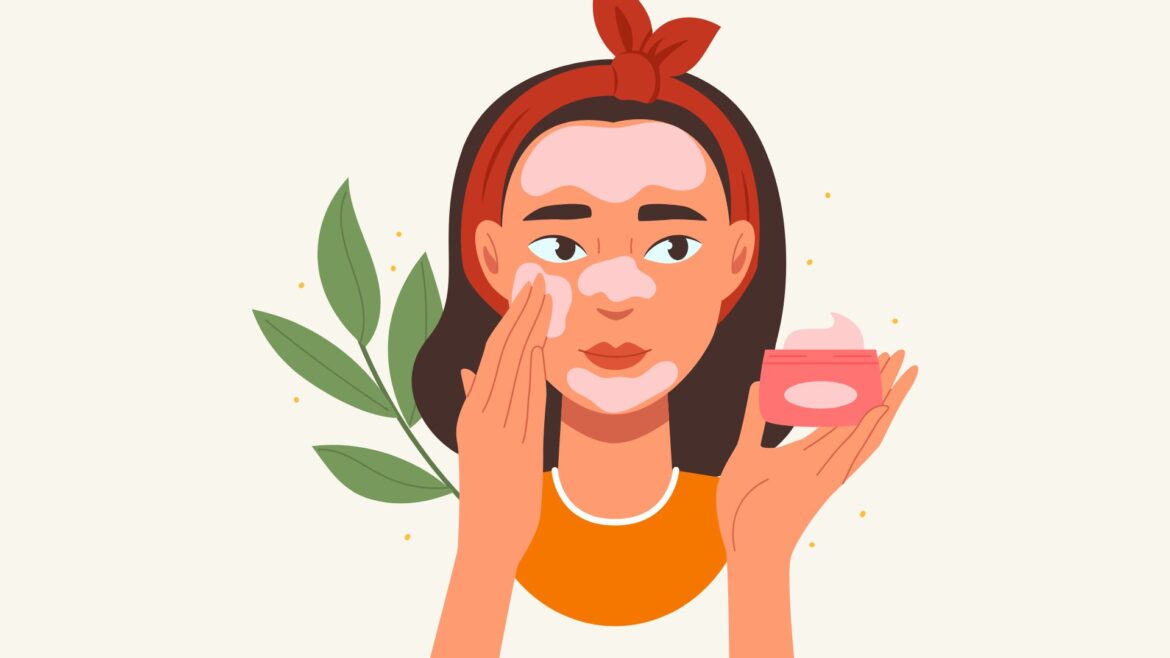Incorporating natural oils into your hair care routine can transform your locks from dull and dry to shiny and healthy. Let’s delve into the benefits of natural hair oils, how to use them effectively, and which oils are best suited for your hair type.
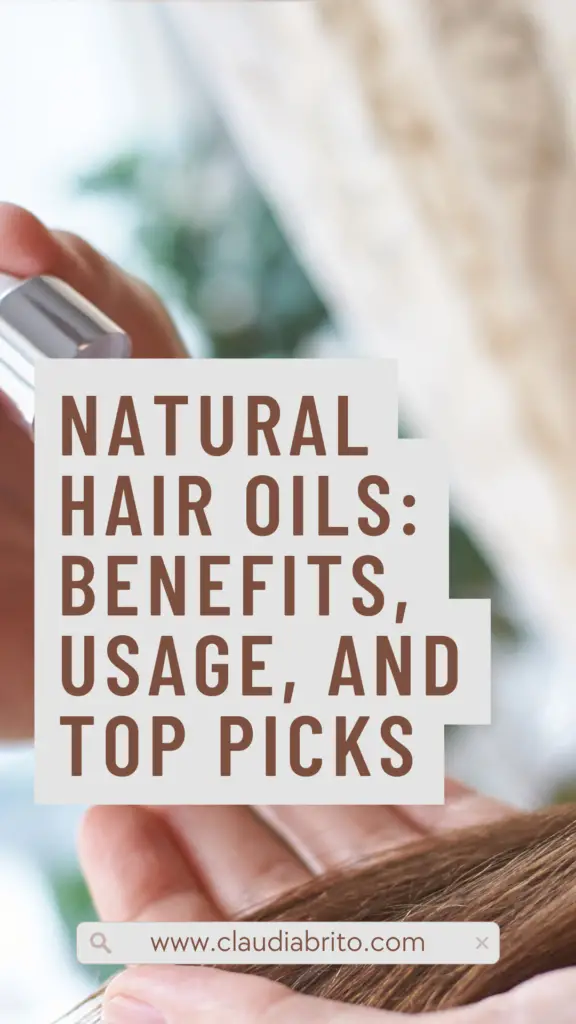
Benefits of Natural Hair Oils
Moisturize and Condition
Natural oils like coconut, olive, argan, and avocado penetrate the hair shaft, sealing in moisture. This deep conditioning improves hair manageability and reduces dryness, making your hair feel softer and look healthier. These oils also help to smooth the cuticle, preventing breakage and split ends.
Reduce Frizz and Flyaways
Oils such as grapeseed and jojoba smooth the hair cuticle, effectively reducing frizz and flyaways for a polished look. By creating a barrier that locks in moisture, these oils prevent hair from becoming dry and frizzy, even in humid conditions. They also help to detangle hair, making it easier to style.
Promote Shine
Applying oils to your hair adds a beautiful shine and luster, making your hair look healthier and more vibrant. Oils coat the hair shaft, reflecting light and giving your hair a natural, glossy appearance. This shine not only looks attractive but also signifies well-moisturized and nourished hair.
Protect from Damage
Oils like sweet almond oil act as a barrier against heat styling tools and UV damage, protecting your hair from environmental stressors. They prevent the hair from becoming dry and brittle due to excessive heat or sun exposure. Regular use of these oils can lead to stronger, more resilient hair.
Stimulate Hair Growth
Essential oils such as rosemary and cedarwood stimulate the scalp and promote hair growth by improving circulation and providing essential nutrients. These oils invigorate the scalp, promoting a healthy environment for hair growth. They also help to reduce dandruff and flakiness, keeping the scalp clean and healthy.
How to Use Natural Hair Oils
Add to Product’s
Enhance your shampoo, conditioner, or hair masks by adding a few drops of your chosen oil. This can help to boost the moisturizing and nourishing properties of your hair care products, making your routine more effective.
Leave-in Treatment
Apply to damp hair and leave in for added moisture and shine. This method is particularly beneficial for dry and damaged hair, as it provides continuous hydration throughout the day.
Hot Oil Treatment
Warm the oil and massage it into your scalp and hair before shampooing for a deep conditioning treatment. This helps to open up the hair cuticles, allowing the oil to penetrate deeply and nourish your hair from within.
Scalp Treatments
Mix essential oils with carrier oils for targeted scalp care. Regular scalp massages with these oil blends can improve blood circulation, reduce dryness, and stimulate hair growth.
Moderation
Use oils sparingly to avoid buildup and greasiness. It’s important to find the right balance and not overuse oils, as this can lead to heavy, greasy hair.
Choosing the Right Oil for Your Hair Type
Dry, Coarse Hair
Opt for heavier oils like coconut, olive, and avocado, which provide intense moisture. These oils are rich in fatty acids and vitamins that help to deeply nourish and condition dry, coarse hair, making it softer and more manageable.
Fine, Thin Hair
Use lighter oils such as argan, grapeseed, and marula to avoid weighing down your hair. These oils are easily absorbed and provide moisture and shine without making fine hair look limp or greasy.
Oily Hair/Scalp
Jojoba and grapeseed oils help balance oil production without making hair greasy. These oils are similar to the natural sebum produced by the scalp, helping to regulate oil levels and keep hair looking fresh.
Damaged, Brittle Hair
Choose oils rich in fatty acids and antioxidants like argan and marula to repair and nourish. These oils help to strengthen and restore damaged hair, reducing breakage and improving overall health.
Oil Blends and Treatments
Hot Oil Treatments:Warm the oil, massage it into your scalp and hair, and leave it on for 30-60 minutes before washing out. This treatment deeply conditions the hair, making it softer, shinier, and more manageable. It’s especially beneficial for dry or damaged hair.Hair Masks/Deep Conditioners:Boost the effectiveness of your hair masks by adding a few drops of oil. This enhances the conditioning properties of the mask, providing extra nourishment and moisture to your hair.Leave-In Treatments:Apply a small amount of oil to damp hair to seal in moisture. This helps to keep your hair hydrated and frizz-free throughout the day, making it easier to style and manage.Pre-Shampoo Treatments:Massage oil into your hair before shampooing to protect against harsh detergents. This creates a protective barrier that prevents the shampoo from stripping your hair of its natural oils, keeping it healthy and moisturized.Scalp Massage:Use essential oils mixed with carrier oils for an invigorating and nourishing scalp massage. Regular scalp massages can improve blood circulation, reduce stress, and promote healthy hair growth.
Spotlight on Top Natural Hair Oils
Coconut Oil
Moisturizes, reduces protein loss, and has antimicrobial properties, making it ideal for scalp health. Coconut oil penetrates deeply into the hair shaft, providing intense moisture and preventing protein loss, which is essential for strong, healthy hair.
Argan Oil
Conditions hair, tames frizz, adds shine, and repairs split ends. Rich in vitamins and antioxidants, argan oil nourishes and revitalizes hair, making it look and feel healthier.
Rosemary Oil
Stimulates hair growth and improves scalp circulation. Rosemary oil is known for its ability to enhance blood circulation, promoting a healthy scalp and encouraging hair growth.
Castor Oil
Promotes hair growth and improves keratin production, making hair stronger. Castor oil is thick and rich, providing deep conditioning and strengthening the hair shaft.
Jojoba Oil
Moisturizes without leaving an oily residue, suitable for all hair types. Jojoba oil is lightweight and non-greasy, making it perfect for moisturizing and balancing all hair types.
Cedarwood Oil
Balances oil production and promotes hair growth. Cedarwood oil helps to regulate the scalp’s oil production, preventing both dryness and greasiness.
Peppermint Oil
Increases scalp circulation and promotes thicker hair growth. Peppermint oil has a cooling effect that invigorates the scalp, improving blood flow and encouraging hair growth.
Proper Application Techniques
- Focus on Ends and Mid-Lengths: Apply oils primarily to the ends and mid-lengths of your hair to avoid an overly greasy scalp. The ends of your hair are typically the driest and most damaged, so they benefit the most from the added moisture.
- Use Small Amounts: A little goes a long way. Start with a small amount to prevent greasiness. You can always add more if needed, but it’s harder to remove excess oil without washing your hair.
- Absorption Time: Allow oils to absorb for 20-30 minutes before rinsing for deeper conditioning benefits. This gives the oil enough time to penetrate the hair shaft and provide maximum nourishment.
Incorporating natural hair oils into your hair care routine can significantly improve the health and appearance of your hair. When used correctly and in moderation, these oils can be the key to achieving the luscious, healthy hair you’ve always desired.
Breaking all the myths about Relationships (and love life) + TIPS!
If you clicked on this blog post is because you also want to know about all the myths in relationships and what entails. And so did I when…
4 min read
Collagen Benefits: The Secrets to a Youthful Skin
Collagen has arisen as a popular expression that most people use. Famous people and specialists continue to promote the advantages of collagen in our skin and in our…
4 min read
81 Self-Discovery Questions to ask yourself
Do you want to embark in a journey for you to develop yourself and know more about yourself? This is the right post for you! There is literally…
4 min read
6 BEST SUNSCREENS FOR YOU TO USE!
Finding the best sunscreen for your face or your body can be challenging (especially with the fake advertisement we see nowadays; DON’T FALL FOR IT!) It doesn’t only…
4 min read
9 Best Foundations for Acne-Prone Skin
For those that have Acne-Prone Skin it is a struggle to find makeup that will not harm your skin condition. In my personal journey I struggled, so believe…
4 min read
5 SKIN CARE ingredients you need to know!
Your skin care ingredients are important if you want to have a good and effective skin routine. If you are reading this post is because you want to…
4 min read
